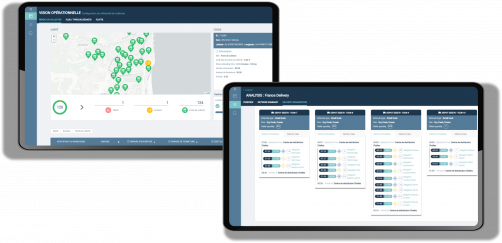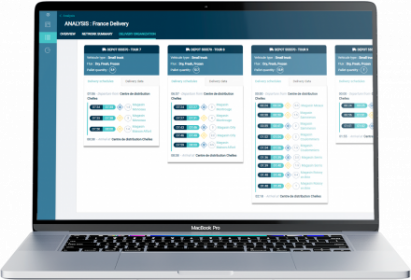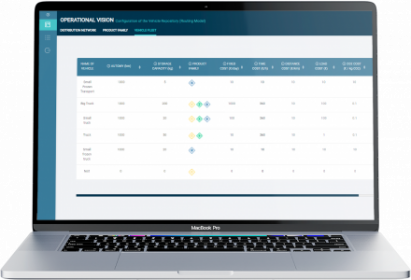OptiWise

Optimize your processes with artificial intelligence
Inventory management, allocation of human and financial resources, raw material, and energy management are significant challenges for our customers. Operational Research is the answer to these challenges! Our Optiwise solution is a toolbox of optimization technologies to meet your operational challenges.
Functionalities
-
Rely on OptiWise to :
Configure and run the optimization models
 Configure an optimization problem taking into account the specificities of your context
Configure an optimization problem taking into account the specificities of your context -
Rely on OptiWise to :
Visualize the results of the optimization
 Conduct further analysis and studies
Conduct further analysis and studies
Use our generic models to address your operational challenges
A multi-flow model to optimize the structure of a network.

OptiWise in action
Our operations research experts use their in-depth knowledge of optimization algorithms and technologies to adapt OptiWise tools to your context and turn them into powerful decision support tools.
-
DELIVERY PROCESS OPTIMIZATION
We deployed OptiWise to optimize the delivery process of a major retailer with a network of more than 2,000 stores, 15 warehouses, 120 vehicles, and 3,000 pallets to deliver daily.
Our client optimized their delivery schedule by 5 minutes: an overall cost reduction of up to 25% and a vehicle fill rate that now reaches 90%. -
SUPPLY CHAIN RESILIENCE
OptiWise is used to test the resilience of the supply chain of a major distribution company.
Thanks to the optimization of networks and delivery routes, a bottom-up modeling of the available processes can be used to simulate different scenarios that impact the client's logistics capacities: loss of warehouse capacity, fleet unavailability, etc.
OptiWise enables the implementation of relevant responses to these scenarios. -
COLLECTION NETWORK SIZING
We deployed OptiWise as part of a prospective study aimed at estimating waste collection schemes throughout the metropolitan area.
The modeling of the various infrastructures involved (depots, collection sites, etc.) coupled with the scenarios developed by our consultants made it possible to establish the costs and resources to be committed according to the options considered.
The complete automation of the process made it possible to generate more than a thousand analyses on a set of 1200 collection points in less than 12 hours.







